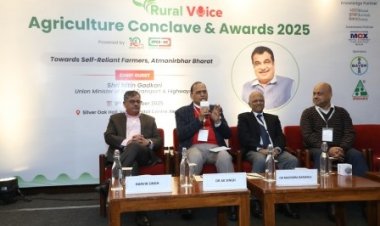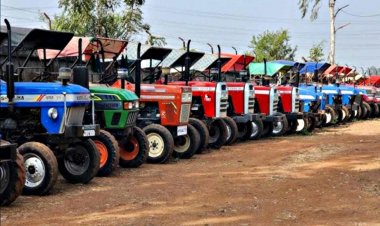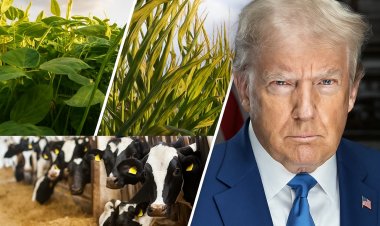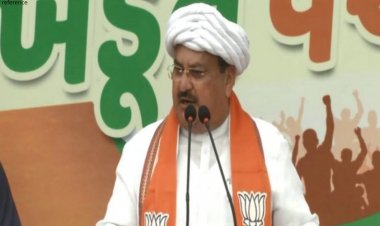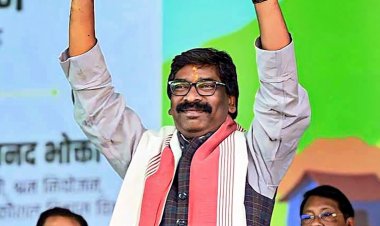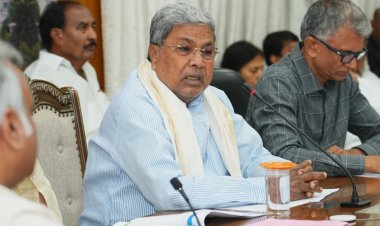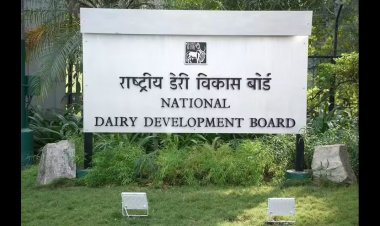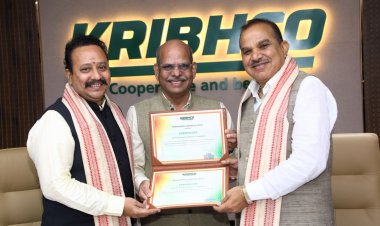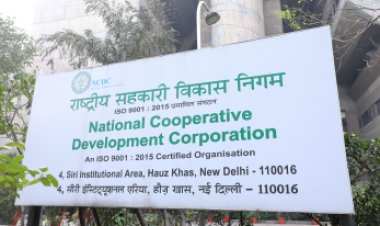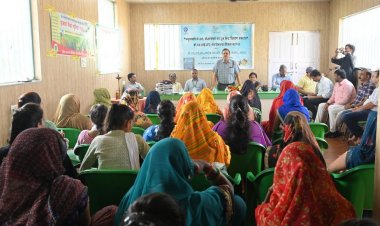The provisions in the Interim Budget announced by Finance Minister Nirmala Sitharaman in Parliament have evoked mixed reactions from agri industries and representatives of farmers.
While agriculture industries have by and large welcomed the announcements for the farming and dairy sectors, farmers' bodies have criticized the budget as anti-farmer and "platter to corporates".
President of Bayer South Asia and Vice Chairman, MD & CEO of Bayer CropScience Ltd (BCSL) Simon Wiebusch, said, “The Finance Minister’s announcement, identifying women and farmers as key focus groups for powering India’s growth, has set the stage for policies that can substantially boost development in rural areas.
"I am also happy to see the government’s continued push to improve farmer incomes. Policies like the PM Kisan Sampada Yojana and the PM Fasal Bima Yojana, along with measures to promote private and public investment in post-harvest activities including modern storage, efficient supply chains, and marketing and branding will herald a transformative era in Agriculture.
"While the budget’s focus on advancing sustainability initiatives across sectors, improving farmer incomes, and women empowerment will help fulfil the Prime Minister’s vision of a ‘Viksit Bharat’, its proactive approach on women’s health is a crucial step towards ensuring preventive healthcare for a large section of the population," he said.
Simon George, President Cargill India and Managing Director Cargill Food Business, South Asia said, “The interim Budget is a vision pathway to create a "Viksit Bharat" by 2047. Intent to achieve atmanirbharta in oilseeds production, increased focus on dairy and fisheries farming and private and public investment in post-harvest activities like modern storage, efficient supply chains, and marketing, signal a transformative chapter in agriculture. I laud the Government’s intent to create an inclusive Bharat with a strong emphasis on youth, women, farmers, and marginalized communities."
The Finance Minister’s announcement spotlighting women and farmers as pivotal drivers of India's development, and paves the way for policies poised to significantly enhance rural progress. These foundational policies are primed to ignite fresh opportunities, spur demand, and trigger economic growth.
Dr KC Ravi, Chief Sustainability Officer, Syngenta India Pvt Ltd & Chairman, CropLife India, said the robust physical-digital-social infrastructure developed in the last decade has given the economy a good foundation for a Viksit Bharat by 2047.
Digital infrastructure and infusion of technology is imperative to not only sustain the momentum but also to take the agriculture growth story to its logical conclusion. The focus on self-reliance in edible oils and investment in post-harvest activities are some of the measures that can make this happen.
Ajai Rana, Chairman, FSII, CEO and Managing Director, Savannah Seeds Pvt Ltd said that having steered the economy to a glorious path in the last one decade with progressive reforms in agriculture, it is heartening to see the Finance Minister spell out the vision for making India Viksit by 2047 that relies on continued momentum on advances made so far.
The Seed Industry is particularly happy to see the emphasis given on oilseeds and the imperative to make the sector self-reliant in this interim Budget.
"We welcome the Finance Minister’s announcement on Atmanirbhar Oilseeds Abhiyan with a focused strategy on achieving self reliance in oilseeds, such as mustard, groundnut, soyabean, sesame and sunflower. This is a timely and effective step that shall augment our aspirations to become self-reliant in this critical sector. As India continues to make rapid strides towards being a world leader, it is vital that we embrace globally approved technologies. The industry applauds Government’s focus on high yielding varieties of seeds, adoption of modern farming techniques, market linkages, procurement, value addition and crop insurance."
On the other hand, the All India Kisan Sabha (AIKS) -- the farmers' wing of the Communist Party of India (CPI) -- said the Narendra Modi government is creating a fake narrative that the Union Budget 2024-25 (Interim) is “innovative and inclusive”, while the hard reality is that 2023-24 and 2024-25 would be the years with the lowest spending on agriculture and allied activities in the last five years.
Ashok Dhawale, President, and Vijoo Krishnan, General Secretary, said that even in the election year, the Union Budget 2024-25 (Interim) has nothing substantial to offer for the rural economy and the agricultural sector.
When compared with 2022-23, the allocation for agriculture and allied activities in 2024-25 budget has been cut by a whopping Rs 81,000 crores. In overall allocations for agriculture and allied activities there is a decline of 22.3 % compared to actual expenditure in 2022-23 and 6 % decline vis a vis the 2023-24 revised budget. This is a clear indication of the class nature of the “inclusion” by the Modi regime, which is systematically trying to dismantle small scale agriculture and the livelihood of crores of peasants and agricultural workers at the behest of its corporate cronies, they said.
The “innovative” methods to annihilate the peasantry invented by the Modi regime is sought to be hidden in the larger framework of the nationalist narrative, they said.
The Samyukta Kisan Mircha described the budget as a platter to corporates and gave a call to burn the pro-corporate budget on February 3 at village level and Grameen Bandh on February 16.
The SKM, an umbrella body of farmers unions and the Joint Committee of Trade Union (JCTU), said "PPP in post-harvest operations marks back entry of three Farm Acts".
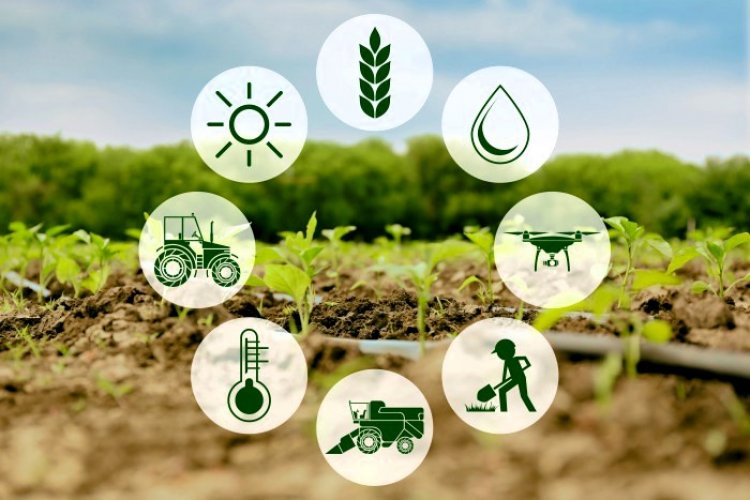



 Join the RuralVoice whatsapp group
Join the RuralVoice whatsapp group


















